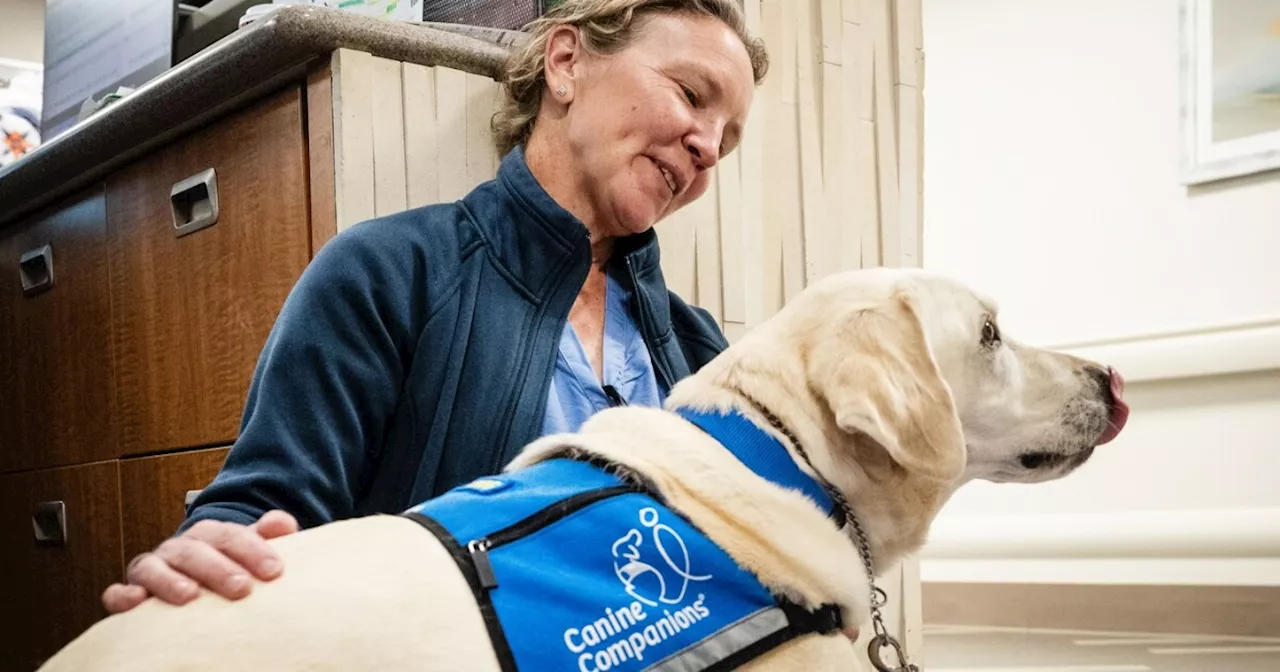This article explores the groundbreaking field of psychoneuroimmunology and its impact on trauma therapy. It delves into the intricate connection between the immune system, brain function, and emotional well-being, highlighting how unresolved trauma can manifest in physiological and psychological symptoms. The article examines various therapeutic approaches, including mindfulness, psychological first aid, and immunotherapy, emphasizing their potential to address both the psychological and physiological aspects of trauma.
Psychoneuroimmunology (PNI) is revolutionizing trauma therapy by recognizing the intricate connection between the immune system, brain function, and emotional well-being. PNI research highlights how unresolved trauma can impact the immune system, leading to chronic inflammation and a heightened stress response. This understanding opens new avenues for treatment, emphasizing strategies that address both psychological and physiological aspects of trauma.
Short-term mindfulness retreats, for instance, have demonstrated effectiveness in reducing inflammation and improving emotional health. This approach leverages the power of focused attention to regulate the nervous system and promote a sense of calm.Psychological first aid, a critical intervention strategy employed in the aftermath of traumatic events, provides immediate support and care to individuals and communities affected by crises. This approach aims to stabilize emotional distress, meet basic needs, and encourage a sense of safety and hope.Emerging research also explores the link between obsessive-compulsive disorder (OCD) and pediatric autoimmune neuropsychiatric disorders (PANS/PANDAS). Studies suggest that OCD may trigger PANS/PANDAS and be associated with systemic autoimmune diseases. Immunotherapy in such cases has shown promise in improving prognosis.Parenting a neurodivergent child can be incredibly demanding. The constant need to monitor, manage, and support their unique needs can lead to significant stress and exhaustion. Self-compassion emerges as a crucial tool for parents in this situation. Practicing self-kindness, understanding, and acceptance allows parents to navigate the challenges with greater resilience and reduce the emotional burden.Trauma responses extend beyond the classic fight, flight, or freeze reactions. Withdrawal, a state of detachment and emotional shutdown, can become a long-term response to trauma. Understanding this complex reaction is crucial for effective trauma therapy. Survivors often benefit from reframing their negative view of their symptoms, recognizing them as unconscious choices made to survive overwhelming experiences.In today's world, mental health symptoms are increasingly recognized as defense mechanisms activated in response to stress, fear, and existential pain. The nervous system, in its protective role, overactivates in an attempt to shield individuals from overwhelming emotions. Recognizing this underlying purpose can shift our perspective on mental health challenges and foster a more compassionate approach to treatment.Collaborative approaches, such as joint journaling, are gaining traction in therapeutic settings. While requiring more effort from both the therapist and client, the benefits are numerous. This method enhances communication, encourages self-reflection, and strengthens the therapeutic alliance. Raising awareness about neuropsychiatric symptoms in young people is paramount. Doctors, therapists, and parents need access to information and training to recognize these symptoms and respond effectively. Early intervention can make a significant difference in improving outcomes for young individuals struggling with mental health challenges.Crises, while undoubtedly challenging, present valuable opportunities for learning and growth. By acknowledging this potential, we can guide children through adversity, equipping them with resilience and coping skills. The growing body of evidence linking food and mood underscores the need for a holistic approach to mental health. Nutrition plays a crucial role in brain function and emotional well-being, and incorporating dietary interventions into treatment plans can enhance outcomes.Aloneness, distinct from loneliness, is a state of solitude chosen for its own sake. It is a conscious decision to spend time alone without feeling isolated or unloved. Recognizing this difference is important for understanding individual experiences and promoting emotional well-being.Post-COVID neurological and psychiatric symptoms are a significant concern. Some individuals experience lingering effects that resemble neuropsychiatric conditions. Further research is needed to understand these long-term impacts and develop effective treatment strategies.Preventing the development of post-traumatic stress disorder (PTSD) after unavoidable traumas is a critical goal. Focusing on building resilience, fostering emotional regulation, and providing timely support can empower individuals to navigate trauma without enduring lasting psychological harm.
Psychoneuroimmunology Trauma Therapy Immune System Mental Health Mindfulness Psychological First Aid OCD PANS/PANDAS Neurodiversity Self-Compassion Withdrawal Defense Mechanisms Neuropsychiatric Symptoms Food And Mood Post-COVID Syndrome PTSD
United States Latest News, United States Headlines
Similar News:You can also read news stories similar to this one that we have collected from other news sources.
 Therapy Dogs Help Hospital Staff Cope With Stress and TraumaA growing mental health crisis among healthcare workers is being addressed by the presence of therapy dogs at HCA HealthONE Rose medical center in Denver. Dogs like Peppi, a yellow Lab, provide a calming presence and help staff decompress during stressful shifts. The dogs are carefully trained and kept away from patients with allergies to minimize risks. Advocates believe that human-animal interaction can have positive effects on mental and emotional well-being.
Therapy Dogs Help Hospital Staff Cope With Stress and TraumaA growing mental health crisis among healthcare workers is being addressed by the presence of therapy dogs at HCA HealthONE Rose medical center in Denver. Dogs like Peppi, a yellow Lab, provide a calming presence and help staff decompress during stressful shifts. The dogs are carefully trained and kept away from patients with allergies to minimize risks. Advocates believe that human-animal interaction can have positive effects on mental and emotional well-being.
Read more »
 The Future of Trauma Therapy: An Integrated ApproachThis article explores the importance of incorporating psychoneuroimmunology into trauma therapy, highlighting a paradigm shift towards a holistic approach that recognizes the complex interplay between the mind, body, and immune system.
The Future of Trauma Therapy: An Integrated ApproachThis article explores the importance of incorporating psychoneuroimmunology into trauma therapy, highlighting a paradigm shift towards a holistic approach that recognizes the complex interplay between the mind, body, and immune system.
Read more »
 Understanding Play Therapy: A Guide for ParentsPlay therapy is a common but often misunderstood child therapy method. This article explores what play therapy entails, how it works, different approaches, and the importance of parental involvement. It clarifies common misconceptions, highlights the benefits of evidence-based play therapy, and provides guidance for parents seeking to support their child's therapeutic journey.
Understanding Play Therapy: A Guide for ParentsPlay therapy is a common but often misunderstood child therapy method. This article explores what play therapy entails, how it works, different approaches, and the importance of parental involvement. It clarifies common misconceptions, highlights the benefits of evidence-based play therapy, and provides guidance for parents seeking to support their child's therapeutic journey.
Read more »
 The Unseen Shift: How Technology is Transforming IntimacyThis article explores the growing impact of technology on human intimacy, arguing that we are failing to adequately address its profound implications. The author, a sex therapist, highlights the increasing availability of sex technology, declining rates of intercourse, and the rise of sex toy sales as evidence of this shift. Despite these trends, she observes a lack of public discourse and awareness surrounding the subject. The article emphasizes the need for proactive engagement in shaping the future of intimacy, advocating for open discussions, ethical guidelines, and education about the potential benefits and risks of technology in this domain.
The Unseen Shift: How Technology is Transforming IntimacyThis article explores the growing impact of technology on human intimacy, arguing that we are failing to adequately address its profound implications. The author, a sex therapist, highlights the increasing availability of sex technology, declining rates of intercourse, and the rise of sex toy sales as evidence of this shift. Despite these trends, she observes a lack of public discourse and awareness surrounding the subject. The article emphasizes the need for proactive engagement in shaping the future of intimacy, advocating for open discussions, ethical guidelines, and education about the potential benefits and risks of technology in this domain.
Read more »
 The Rise of AI Voice: Transforming Interactions and IndustriesThis article explores the rapid growth of AI voice technology, its impact on various industries, and the investment opportunities it presents. It discusses key trends, challenges, and future projections for the AI voice market.
The Rise of AI Voice: Transforming Interactions and IndustriesThis article explores the rapid growth of AI voice technology, its impact on various industries, and the investment opportunities it presents. It discusses key trends, challenges, and future projections for the AI voice market.
Read more »
 Academic Labs Unveils Whitepaper 2.0: Transforming Education with AI and Web3Academic Labs, a leading European cryptocurrency exchange, announces the release of its Whitepaper 2.0, detailing its ambitious vision for revolutionizing education through the EduFi Ecosystem powered by Solana blockchain, AI, and Web3 technologies. The whitepaper introduces the AAX Chain and AI-Agent layer, aiming to personalize learning and optimize knowledge sharing.
Academic Labs Unveils Whitepaper 2.0: Transforming Education with AI and Web3Academic Labs, a leading European cryptocurrency exchange, announces the release of its Whitepaper 2.0, detailing its ambitious vision for revolutionizing education through the EduFi Ecosystem powered by Solana blockchain, AI, and Web3 technologies. The whitepaper introduces the AAX Chain and AI-Agent layer, aiming to personalize learning and optimize knowledge sharing.
Read more »
